-
 Bitcoin
Bitcoin $115100
1.27% -
 Ethereum
Ethereum $3675
2.71% -
 XRP
XRP $2.995
1.45% -
 Tether USDt
Tether USDt $1.000
0.02% -
 BNB
BNB $769.8
2.64% -
 Solana
Solana $168.0
3.25% -
 USDC
USDC $0.9999
-0.01% -
 TRON
TRON $0.3371
1.48% -
 Dogecoin
Dogecoin $0.2051
3.36% -
 Cardano
Cardano $0.7394
2.30% -
 Hyperliquid
Hyperliquid $38.15
0.42% -
 Stellar
Stellar $0.3966
-0.36% -
 Sui
Sui $3.486
2.93% -
 Chainlink
Chainlink $16.72
2.52% -
 Bitcoin Cash
Bitcoin Cash $568.0
4.36% -
 Hedera
Hedera $0.2440
2.59% -
 Ethena USDe
Ethena USDe $1.001
0.04% -
 Avalanche
Avalanche $22.16
2.06% -
 Litecoin
Litecoin $119.1
-0.73% -
 UNUS SED LEO
UNUS SED LEO $8.991
0.04% -
 Toncoin
Toncoin $3.232
-0.39% -
 Shiba Inu
Shiba Inu $0.00001233
2.82% -
 Uniswap
Uniswap $9.717
2.53% -
 Polkadot
Polkadot $3.664
1.85% -
 Dai
Dai $1.000
0.01% -
 Monero
Monero $281.2
-3.89% -
 Bitget Token
Bitget Token $4.350
1.55% -
 Cronos
Cronos $0.1428
5.07% -
 Pepe
Pepe $0.00001050
3.68% -
 Aave
Aave $262.3
3.54%
What is the reason for the abnormal OKX liquidation price?
OKX liquidation prices deviate from market prices due to slippage, insufficient liquidity, order book conditions, and the exchange's algorithms, impacting traders' risk management.
Mar 21, 2025 at 09:42 pm
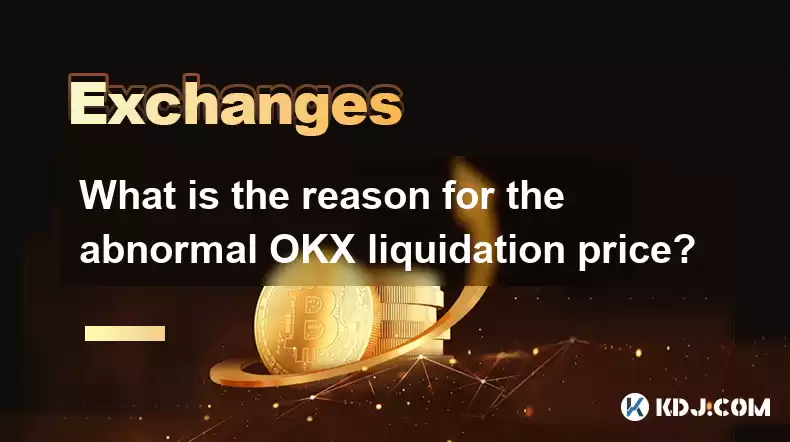
Key Points:
- OKX liquidation prices can deviate from expected market prices due to several factors, primarily relating to the complexities of automated liquidation systems and market conditions.
- These factors include slippage, insufficient liquidity, and the order book's state at the time of liquidation.
- The specific algorithms used by OKX for liquidation also play a significant role.
- Understanding these contributing factors is crucial for traders to manage their risk effectively.
What is the reason for the abnormal OKX liquidation price?
The question of abnormal liquidation prices on OKX, or any cryptocurrency exchange, is multifaceted. It's rarely a single cause but rather a confluence of factors that can lead to a liquidation price significantly different from the observed market price at the time. This can be particularly frustrating for traders who find themselves liquidated at an unfavorable price, seemingly out of line with the broader market movement.
One major contributor is slippage. Slippage refers to the difference between the expected price of a trade and the actual execution price. During liquidations, the system needs to sell a large quantity of assets rapidly. This large sell order can overwhelm the available liquidity at the current market price, pushing the execution price lower than anticipated. This effect is amplified during periods of low liquidity or high volatility.
Another crucial factor is insufficient liquidity. If the order book on OKX doesn't have enough buy orders at the desired price level to absorb the large sell order generated by a liquidation, the system will be forced to execute the trade at progressively lower prices to fill the order. This can lead to a significant deviation from the prevailing market price displayed on the exchange.
The state of the order book itself plays a critical role. The depth and distribution of buy and sell orders at various price points directly impact the liquidation price. A shallow order book, with limited buy orders near the current market price, will increase the likelihood of slippage and unfavorable liquidation prices. Conversely, a deep order book with substantial buy-side liquidity mitigates this risk.
The algorithms used by OKX for automatic liquidations are also key. These algorithms are designed to execute liquidations swiftly and efficiently, but their specific mechanisms can lead to variations in execution prices. The algorithm's priority might be speed of execution over achieving the best possible price, potentially resulting in a less-than-ideal liquidation price for the trader.
Furthermore, network latency and system delays can impact liquidation prices. If there's a delay in the communication between the trader's system, the exchange's servers, and the order book, the market price might shift significantly between the time the liquidation is triggered and when it's actually executed. This delay can lead to a liquidation at a price that no longer reflects the current market situation.
The interplay of these factors can lead to what appears as an "abnormal" liquidation price. It's essential to understand that the exchange's goal is efficient liquidation, not necessarily the most favorable price for the liquidated trader. This is inherent in the mechanics of margin trading and the risks involved.
Market Volatility: High volatility amplifies the effects of slippage and liquidity issues. During periods of rapid price swings, the market can move dramatically in a short period, increasing the chances of an unfavorable liquidation price.
Trading Pair Liquidity: The liquidity of the specific trading pair involved significantly affects the liquidation price. Less liquid pairs are more susceptible to slippage and adverse price movements during liquidations.
Order Type: The type of order used for liquidation (e.g., market order vs. limit order) also plays a role. Market orders, while ensuring immediate execution, are more prone to slippage than limit orders, which may not always execute immediately.
Frequently Asked Questions:
Q: Can I appeal an OKX liquidation price I believe was unfair?
A: OKX typically does not allow appeals based on the specific price of a liquidation. Their automated system prioritizes efficient execution, and deviations from expected market prices due to slippage or low liquidity are considered inherent risks of margin trading.
Q: How can I minimize the risk of an abnormal liquidation price on OKX?
A: Maintain a healthy margin level, avoid highly leveraged positions, especially during volatile market conditions, and carefully monitor market liquidity and order book depth before initiating trades. Choose less volatile trading pairs.
Q: Does OKX use a specific algorithm for liquidations, and is it publicly available?
A: OKX's precise liquidation algorithms are generally not publicly disclosed for security and competitive reasons. However, they generally prioritize speed and efficiency of execution to minimize losses for the exchange in case of a default.
Q: What is the difference between a liquidation price and the market price at the time?
A: The liquidation price is the actual price at which your position is automatically closed by the exchange due to insufficient margin. The market price is the prevailing price displayed on the exchange at a given moment. These can differ due to slippage, low liquidity, and the mechanics of the liquidation process itself.
Q: Is there a way to predict the exact liquidation price on OKX?
A: No, it's impossible to predict the exact liquidation price with certainty. Too many variables, including real-time market conditions and the exchange's algorithms, influence the final execution price. However, understanding the factors contributing to price slippage can help you better manage risk and minimize potential losses.
Disclaimer:info@kdj.com
The information provided is not trading advice. kdj.com does not assume any responsibility for any investments made based on the information provided in this article. Cryptocurrencies are highly volatile and it is highly recommended that you invest with caution after thorough research!
If you believe that the content used on this website infringes your copyright, please contact us immediately (info@kdj.com) and we will delete it promptly.
- BlockDAG, Litecoin, and Cardano: Charting the Course in Crypto's Dynamic Waters
- 2025-08-07 09:09:06
- Fireverse Token: Igniting a Musical Revolution in Web3
- 2025-08-07 08:27:45
- Ethereum, L2 Withdrawals, and Decentralization: A New Yorker's Take
- 2025-08-07 08:32:33
- Avalanche vs. Ruvi AI: Daily Sales Tell a Story of Crypto Disruption
- 2025-08-07 06:29:35
- DeSoc: The Crypto to Buy Now for a Decentralized Future (and Maybe 43x Gains!)
- 2025-08-07 06:50:16
- Arctic Pablo Coin: Riding the Meme Coin Wave with a Deflationary Twist
- 2025-08-07 07:18:13
Related knowledge
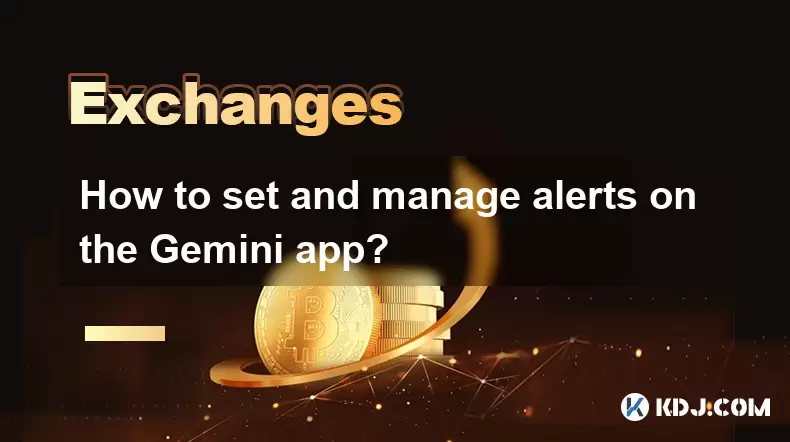
How to set and manage alerts on the Gemini app?
Aug 03,2025 at 11:00am
Understanding the Gemini App Alert SystemThe Gemini app offers users a powerful way to stay informed about their cryptocurrency holdings, price moveme...
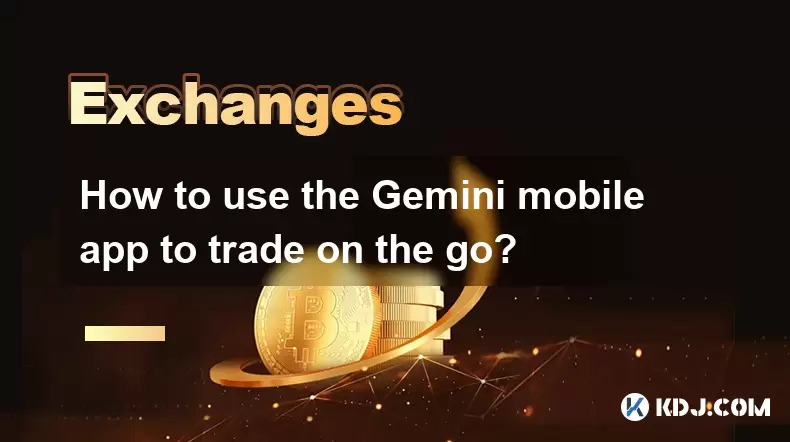
How to use the Gemini mobile app to trade on the go?
Aug 04,2025 at 09:14am
Setting Up the Gemini Mobile AppTo begin trading on the go using the Gemini mobile app, the first step is installing the application on your smartphon...
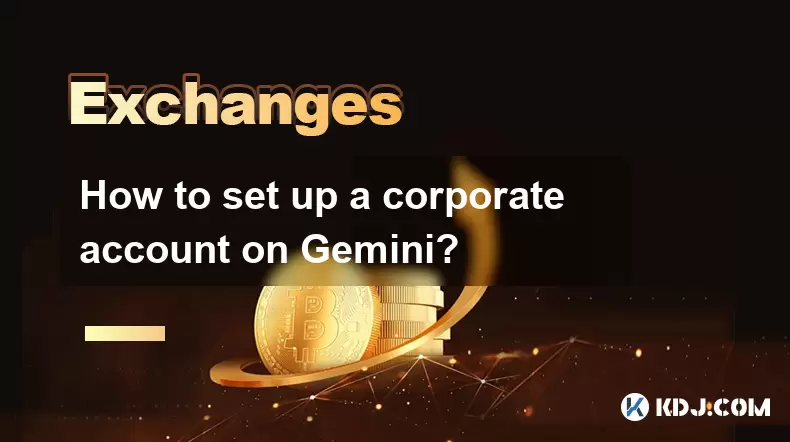
How to set up a corporate account on Gemini?
Aug 05,2025 at 03:29pm
Understanding Gemini Corporate AccountsGemini is a regulated cryptocurrency exchange platform that supports both individual and corporate account crea...
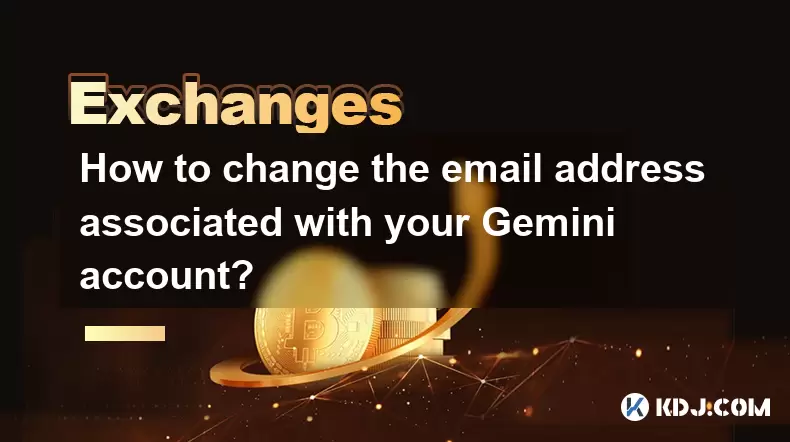
How to change the email address associated with your Gemini account?
Aug 06,2025 at 08:49pm
Understanding the Importance of Updating Your Email on GeminiYour email address serves as a primary identifier and communication channel for your Gemi...
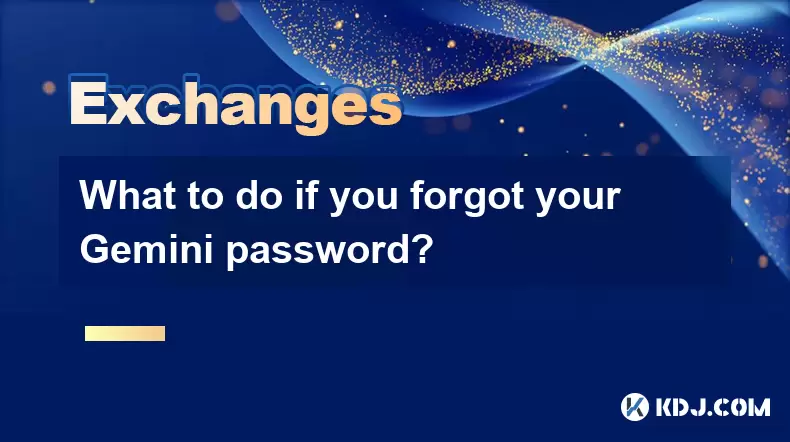
What to do if you forgot your Gemini password?
Aug 04,2025 at 03:42am
Understanding the Role of Passwords in Gemini AccountsWhen using Gemini, a regulated cryptocurrency exchange platform, your password serves as one of ...
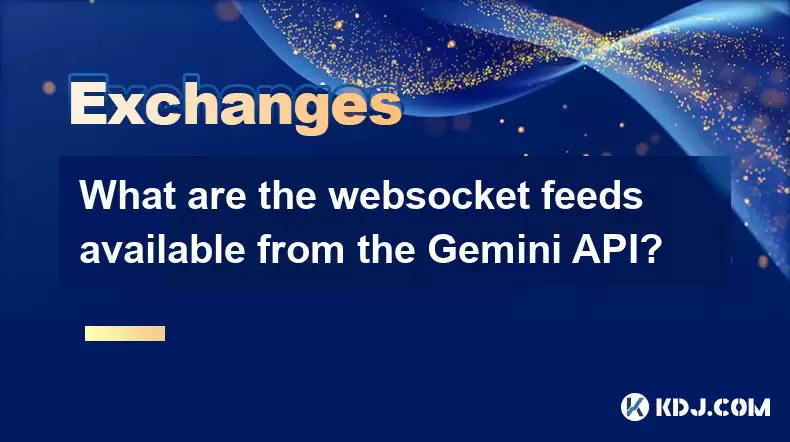
What are the websocket feeds available from the Gemini API?
Aug 03,2025 at 07:43pm
Overview of Gemini WebSocket FeedsThe Gemini API provides real-time market data through its WebSocket feeds, enabling developers and traders to receiv...

How to set and manage alerts on the Gemini app?
Aug 03,2025 at 11:00am
Understanding the Gemini App Alert SystemThe Gemini app offers users a powerful way to stay informed about their cryptocurrency holdings, price moveme...

How to use the Gemini mobile app to trade on the go?
Aug 04,2025 at 09:14am
Setting Up the Gemini Mobile AppTo begin trading on the go using the Gemini mobile app, the first step is installing the application on your smartphon...

How to set up a corporate account on Gemini?
Aug 05,2025 at 03:29pm
Understanding Gemini Corporate AccountsGemini is a regulated cryptocurrency exchange platform that supports both individual and corporate account crea...

How to change the email address associated with your Gemini account?
Aug 06,2025 at 08:49pm
Understanding the Importance of Updating Your Email on GeminiYour email address serves as a primary identifier and communication channel for your Gemi...

What to do if you forgot your Gemini password?
Aug 04,2025 at 03:42am
Understanding the Role of Passwords in Gemini AccountsWhen using Gemini, a regulated cryptocurrency exchange platform, your password serves as one of ...

What are the websocket feeds available from the Gemini API?
Aug 03,2025 at 07:43pm
Overview of Gemini WebSocket FeedsThe Gemini API provides real-time market data through its WebSocket feeds, enabling developers and traders to receiv...
See all articles

























































































